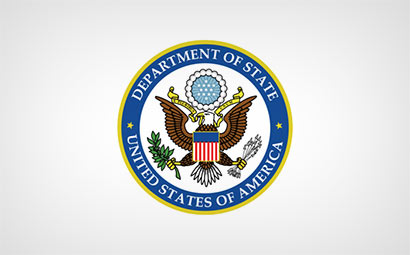U.S. lifts ban on refugees from ‘high-risk’ nations

The Trump administration said Monday that it will resume accepting refugees from 11 nations whose applicants it designated “high-risk” and will implement tougher screening procedures to weed out potential extremists and criminals.
Would-be refugees fleeing some of the world’s most searing conflicts will face more extensive background checks from U.S. screeners, according to senior administration officials, and the government will move to implement what it characterized as a more rigorous model for identifying possible threats.
“These additional security measures will make it harder for bad actors to exploit our refugee program, and they will ensure we take a more risk-based approach to protecting the homeland,” Homeland Security Secretary Kirstjen Nielsen said in a statement.
“The United States must continue to fulfill its obligation to the global community to assist those facing persecution and do so in a manner that addresses the security of the American people,” she said.
The new measures will include additional interviews of applicants’ family members and close scrutiny of potential ties to organized crime, senior U.S. officials said in a conference call with reporters Monday.
U.S. standards for refugee acceptance are already considered some of the toughest in the world, and the process typically takes one to two years. Critics of the administration view the additional screening measures as part of President Trump’s broader goal of limiting all forms of immigration to the United States, especially from majority-Muslim countries.
The Trump administration has refused to identify the 11 nations it considers high-risk, citing “law enforcement sensitivities.” But officials with knowledge of the list say it includes Egypt, Iran, Libya, South Sudan, Yemen, Sudan, Iraq, Mali, North Korea, Somalia and Syria.
All but North Korea and South Sudan are majority-Muslim.
A senior U.S. official insisted Monday that the high-risk determination for the 11 nations “has nothing to do with religion.”
When he campaigned for president, Trump said that he would ban Muslims from entering the United States and that violent extremists could be slipping into the country with a “massive inflow of refugees.”
Once in office, Trump froze refugee admissions and capped the number the United States would accept at 45,000 per year, the lowest total since the Refugee Act was created in 1980.
The United States resumed admitting refugees in October, but the White House ordered the DHS to continue tightly restricting applicants from 11 nations it deemed the most risky, saying it needed an additional 90 days to further assess screening procedures.
Making good on his campaign promises, Trump called for an “extreme vetting” system to make sure “radical Islamic terrorists” were not sneaking in with those fleeing wars, persecution and violence.
Senior officials said U.S. screeners will recommence interviews with high-risk applicants during the second quarter of 2018 and have resumed processing applications from those countries.
The enhanced security measures will also increase information sharing among the U.S. agencies tasked with vetting refugee applicants, according to administration officials. The high-risk list will be reviewed every six months, and countries could be added or removed based on evolving assessments of security threats to the United States.
(Washington Post)
Latest Headlines in Sri Lanka
- Sri Lanka to launch national review on social media’s impact on children January 30, 2026
- Sri Lanka, Saudi Arabia move to boost industrial cooperation January 30, 2026
- Johnston Fernando, two sons and others further remanded until February 13, 2026 January 30, 2026
- Sri Lanka raises daily wage of plantation workers to Rs. 1,750 January 30, 2026
- Sri Lanka expands Internal Affairs Units to 250 more state institutions January 30, 2026



i do notreada the Washington post for that matter any post in the US. Did the washig post qualify sri lanka as being gigh risk and if so what makes sri lanka high risk. The only people that are at high risk are the poor and destitute rural and Buddhist. Beggars do no fall in to this category. ministers are as a rule gerts escorted and thier escort is a major source of employment.
as a refugee in the us are they better off being in the us. i say no